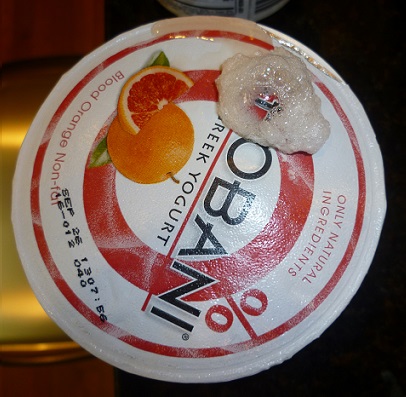
Not more than a few years ago only serious foodies and natives of the Mediterranean sought out Greek-style yogurt. That trend has changed, and Chobani is a big reason for that. However, the company’s recent major product recall due to moldy yogurt has stirred some doubts about quality assurance.
Reports suggest that less than 5% of production was affected by moldy contaminated yogurt. Still, if you think about the number of Chobani units at your local grocery store and multiply that by thousands, 5% is not a small amount.
The company has responded swiftly, and has carried out a well-organized crisis response. While it is still too early to tell how the recall and response will impact the bottom line, it’s not too early to assess what the company has done up to this point.
First, Chobani took immediate ownership and called for a targeted recall of yogurt produced in its Idaho plant. This is a very deliberate procedure. It is absolutely important to take these steps, but not until you are sure it’s necessary. On one hand, you don’t want to demand a recall without full knowledge of the problem, but on the other hand you can’t wait too long.
Second, Chobani’s CEO, Hamdi Ulukaya, stepped in and issued a statement.
"Over the past few days, with the help of our retail partners, we proactively withdrew product from store shelves and I decided to voluntarily recall the limited amount of remaining product to be extra careful and cautious." My heartfelt apologies to our friends, fans and consumers who were impacted, as your loyalty and safety is something we cherish and never take for granted. We have worked round the clock to fully fix the issue and have been shipping fresh product to stores."
Note the careful and efficient language. Ulakaya acknowledged the problem, updated stakeholders on the procedures being carried out, apologized and ensured that the company is doing its best to return things to status quo. His tone was informative, apologetic and respectful.
Ulakaya also didn’t amplify the problem by taking a wild stab at what caused it, how many people suffered illnesses from the bad product or how many tainted units could still be out there. In fact, his language connotes that this is an isolated incident with an end in sight.
Third, the company went the extra mile by offering consumers refunds or replacements. A move like this sets a consumer’s mind at ease because it shows you care and that you want to maintain a relationship.
Responding to crisis is never a situation you want to be in, and how Chobani pulls out of this is yet to be determined. Nevertheless, its calculated response is textbook, and one a PR pro should keep in mind if you ever face a similar situation.
Follow Caysey Welton: @CayseyW

One response to “Chobani’s Crisis Communications Strategy: So Far, So Good”